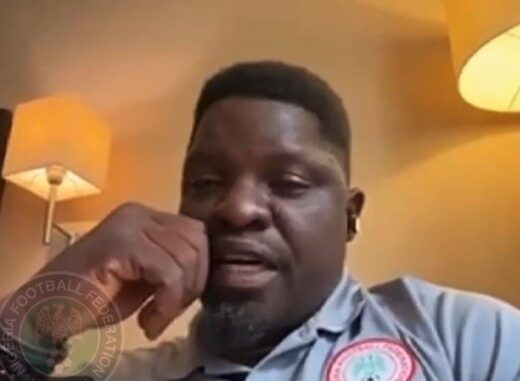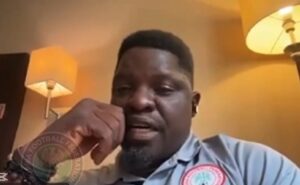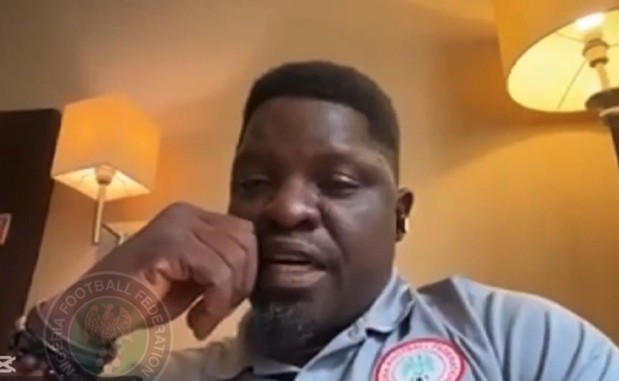Spread the love
“There is a higher court than courts of justice and that is the court of conscience. It supercedes all other courts.” -Mahatma Gandhi
“The glory of justice and the majesty of law are created not just by the Constitution – nor by the courts – nor by the officers of the law – nor by the lawyers – but by the men and women who constitute our society – who are the protectors of the law as they are themselves protected by the law.” -Robert Kennedy.
The truth, to begin this article, is that the earliest manifestations of what the courts will look like in the regime of the newly inaugurated President, Bola Ahmed Tinubu’s administration came long before he was actually sworn in into office.
The body of evidence that there is a total capture of the judicial arm of government by the executive arm of government started anyway, long before Bola Ahmed Tinubu even emerged as the Presidential candidate of the All Progressives Congress during the infamous 8 year regime of the ruthlessly dictatorial and corrupt administration of the immediate past administration of President Muhammadu Buhari. Buhari who hates human rights with a deadly passion, went as far as using the armed Department of State Services operatives to invade the homes of justices of the Supreme Court to instil fear and enable executive capture of the judiciary.
He, former President Muhammadu Buhari also used unfair means to unconstitutionally unseat a substantive chief Justice of Nigeria for fear that allowing him to preside over the post 2019 presidential election could be fatal to his political future because of the sinister plot by his administration to manipulate the outcome of the election petition hearing.
So when the Courts started unleashing venomous attacks on litigants seeking reliefs against the controversially elected President in the February 25th 2023 Presidential Election deemed dubious and manipulated, it all became glaring that we are in a very deep mess in such a way that we have been told by the corrupt judiciary in Nigeria that the poor, oppressed, disadvantaged, will no longer have their way to the court rooms to seek to enforce their fundamental rights as guaranteed by the Constitution of the Federal Republic of Nigeria of 1999, as amended. The likes of late Justices Chukwudifu Oputa and Niki Tobi who were incorruptible, have propagated the need for the judiciary to be fiercely independent. But, under the current dispensation, it is anything goes.
Going to the court of law by poor Nigerians to challenge infractions of the law by the government, is no longer a walk in the park, but is now made a very dangerous gambit because the judges have been tutored to be totally brutal against poor litigants seeking judicial reprieve over members of the ruling political class.
At the centre of it all is the current federal administration in Nigeria now headed by Bola Ahmed Tinubu who is accused of having held clandestine and nocturnal meetings with the Contriversial head of the judicial arm of government at the moment in Nigeria.
Those secret meetings held in London or Paris in France long before the then President elect Bola Ahmed Tinubu was sworn in to assume the reign of office. Both Tinubu and Ariwoola denied the allegations.
Chief Justice Olukayode Ariwoola was allegedly sighted in London pretending to be a physically-challenged old man, Peoples Gazette, an online newspaper learnt, in what Supreme Court sources said was a clandestine preparation for a meeting with President-elect Bola Tinubu.
Mr Ariwoola’s movement was exposed to The Gazette as Mr Tinubu was arriving in London for what his team claimed was a relaxation trip after a hectic campaign that preceded his declaration as Nigeria’s president-elect last month. But Mr Tinubu kept his trip to London secret until it was exposed on Wednesday afternoon by Sahara Reporters, which said the trip was a medical emergency.
Mr Ariwoola’s movement was exposed to The Gazette as Mr Tinubu was arriving in London for what his team claimed was a relaxation trip after a hectic campaign that preceded his declaration as Nigeria’s president-elect last month. But Mr Tinubu kept his trip to London secret until it was exposed on Wednesday afternoon by Sahara Reporters, which said the trip was a medical emergency.
“He has been moving about in the hotel without any wheelchair,” a source familiar with the CJN’s activities at the London accommodation told The Gazette. “He was standing on his own in the elevator just yesterday.”
The Gazette learnt that Mr Ariwoola repeatedly picked up food ordered via delivery services at a mid-level lobby, including Uber Eats and Deliveroo. It was unclear whether or not he placed the orders by himself or how he paid.
With Mr Tinubu now in Europe, he would be meeting Mr Ariwoola in a secret arrangement to discuss issues unknown to Nigerians, our sources said.
“The CJN deliberately left the country more than a week ahead of Tinubu to avoid any suspicion about why both of them disappeared at once,” a source familiar said. “That is why he travelled secretly and Tinubu also travelled secretly.”
Shortly after Mr Tinubu’s trip was reported, his media aides issued a statement saying he was going to be in Paris and London briefly before heading to Saudi Arabia for prayer rites. His return date was not disclosed.
But many Nigerians expressed immediate doubt about the statement’s credibility, especially as it was not volunteered before the trip was uncovered.
“They thought that they could secretly move the president-elect abroad without anybody knowing about it,” a source said. “That’s one of the several mistakes they made on this matter, asides from the belief that they could allow the Chief Justice of Nigeria to move about in a London hotel for several days undetected after going through the trouble of disguising him in a wheelchair.”
The Gazette had temporarily withheld the CJN’s photos and the specific hotel he stayed in to protect a source central to this story.
A Supreme Court source said Mr Ariwoola wanted to meet Mr Tinubu to discuss issues that may arise from the budding legal challenge to the declaration as president-elect, including whether or not he should be worried about the petitions recently filed by opposition parties.
“The CJN would either assure Tinubu of victory in court or tell him that he should be worried about the dimension the petitions may take through the court stages,” the source said under anonymity to avoid facing administrative action for divulging privileged information to reporters. “But we may never know what they actually discussed after their secret meeting.”
“I am reluctant to start thinking about the of their meeting right now,” the source added. “But any fair-minded person will easily admit that both of them meeting in a foreign corner to discuss something that Nigerians will not know about is highly suspicious and should be unwarranted.”
The same media outlet accused the Supreme Court of Brazen partisanship when it narrated that the spokesperson of the CJN blasted the Independent press in Nigeria for daring to uncover the alleged secret meetings between his boss and the then President elect Senator Bola Ahmed Tinubu in London, UK or Paris, France.
The newspaper reports that one, Mr.Festus Akande, a spokesman for the Supreme Court, abruptly hung up when The Gazette requested comment about Mr Ariwoola’s secret trip to London.
The National Judicial Council declined comments about Mr Ariwoola’s suspicious activity. Mr Tinubu’s spokespersons also declined comments on Thursday afternoon.
Mr Ariwoola’s apparent affinity with Mr Tinubu has continued despite the raging challenge to the declaration of Mr Tinubu as president-elect and the ultimate role the Supreme Court is expected to play in the legal battle.
Two main opposition candidates Peter Obi and Atiku Abubakar have that week of the revelation of that secret meeting filed petitions against Mr Tinubu’s emergence, saying the process that led to the decision of the electoral office INEC was fraudulent and unconstitutional.
Mr Obi, the Labour Party’s candidate in the February 25 election, also sought disqualification of Mr Tinubu on the grounds of his involvement in illicit narcotics dealing in the United States between the 1980s and 1990s.
As Nigerians debate the strength of both petitions against Mr Tinubu, they’re also voicing an even more critical concern about the credibility of the Supreme Court as an arbiter of untainted justice.
Besides the court’s recent contentious judgments that severely blunted the court’s reputation — chiefly the decision to return Hope Uzodinma as governor in Imo despite coming fourth in an election and the enforcement of Ahmad Lawan as APC candidate in Yobe North Senatorial District despite not participating in the primaries — critics are also saying Mr Ariwoola’s conduct has done little to inspire public confidence in the Supreme Court under him.
In November 2022, Mr Ariwoola openly praised Seyi Makinde for working internally to sabotage the candidacy of Mr Abubakar. The Supreme Court denied Mr Ariwoola’s statement, but video evidence contradicted the denial. Mr Ariwoola was later questioned by the State Security Service, which feared the comments could threaten the country’s stability.
Still, both Mr Ariwoola and the Supreme Court have repeatedly assured Nigerians that justice would be dispensed fairly as dictated by the Constitution. A spokesman recently said Mr Ariwoola could be expected to dispassionately empanel justices for Messrs Abubakar and Obi’s petitions when they get to the Supreme Court later in the year. But nobody in Nigeria take such words as a believable assurance.
What perhaps shows that the judiciary has become totally compromised and captured by the executive arm of government started raining like a heavy rain when different Federal courts dismissed in torrents, cases filed against Bola Ahmed Tinubu and slammed unprecedented fines against litigants in a show of force to communicate to human rights bodies that the government of President Bola Ahmed Tinubu is in Commanding leadership role over and above the courts of law in Nigeria.
First, a federal high court in Abuja dismissed a suit seeking to stop the swearing-in of Bola Tinubu, candidate of the All Progressive Congress (APC), as Nigeria’s president.
With 8,794,726 votes, the Independent National Electoral Commission (INEC) had declared Tinubu the winner of the presidential poll held on February 25.
In the suit marked FHC/ABJ/CS/ 657/2023, the plaintiffs — Praise Isaiah, Paul Audu and Anongu Moses — alleged that Tinubu lied on oath in his form EC9 that he was not a citizen of another country.
They also alleged that the president-elect lied on oath about his age.
They argued that Tinubu’s action was in gross violation of Section 117 of the Criminal Code Act as well as Section 156 of the Penal Code Act.
Consequently, the plaintiffs prayed the court to order that Tinubu be arrested, detained and prevented from being sworn in, pending the determination of cases before the presidential election petition court.
They equally prayed the court to ban Tinubu from vying for any elective position for the next 10 years.
However, in its ruling, James Omotosho, presiding judge, held that the suit was “unconstitutional, frivolous and vexatious”, adding that the plaintiffs lacked the locus standi (legal right) to institute the action striping the court of the jurisdiction to entertain the suit.
Omotosho held that the suit was an abuse of court process and a waste of judicial time.
He added that the suit was in bad faith and aimed to expose the judiciary to ridicule.
The judge said the court would not lend itself to be used as an instrument to destabilise the country.
He said it is only the presidential election petition court that has the jurisdiction to hear the suit.
He threatened to petition the Legal Practitioners Disciplinary Committee against the plaintiffs’ lawyer for instituting an action “capable of dragging the judiciary to the mud”.
Consequently, Omotosho dismissed the suit and awarded a cost of N10m in Tinubu’s favour, N5m in favour of the APC to be paid by the plaintiffs.
The judge also ordered the counsel to the plaintiffs to pay N1 million to each of the respondents in the suit.
The respondents include president of the Federal Republic of Nigeria, Bola Tinubu, All Progressives Congress (APC), the attorney-general of the federation (AGF), the director-general of the Department of State Services (DSS), the inspector-general of police (IGP) and the Independent National Electoral Commission (INEC).
Besides, a Federal High Court in Abuja within the same period, awarded N20 million fine against Chuks Nwachukwu, a lawyer representing five FCT residents in a suit seeking an order to stop the swearing-in of President Bola Tinubu.
Justice Inyang Ekwo, in a judgment, struck out the suit on the grounds that the plaintiffs lacked ‘locus standi’, the legal right, to institute the matter.
“I make an order striking out this action on grounds of lack of locus standi of the plaintiffs, lack of jurisdiction of the court and failure of the plaintiffs to demonstrate to this court that similar subject is not pending before the Presidential Election Petition Tribunal which proceedings are on-going,” he declared.
Justice Ekwo consequently ordered the lawyer to pay the Attorney-General of the Federation (AGF) and Chief Justice of Nigeria (CJN), listed as 1st and 2nd defendants in the case, the sum of N10 million each.
He directed that until Mr Nwachukwu paid off the N20 million fine, no further action should be taken on the matter.
The judge, who condemned Mr Nwachukwu’s comments in the media, said based on his interview, if the lawyer was in the courtroom, he would have been barred “from practising until he appears before the Legal Practitioners Disciplinary Committee to determine whether he is fit to practise the profession.”
“But since he is not in court, I made an order, directing the registrar to forward all the processes to the Legal Practitioners Disciplinary Committee to determine whether he is fit to practise the profession,” he declared.
He also directed that the order of the court be served on the chief registrar of the Supreme Court, the AGF and the Nigerian Bar Association.
The News Agency of Nigeria (NAN) reports that five FCT residents; Anyaegbunam Okoye, David Adzer, Jeffrey Uche, Osang Paul and Chibuike Nwanchukwu, had filed the suit through their lawyer, for an order of the court to stop the inauguration of Mr Tinubu and his vice, Kassim Shettima, slated for 29 May.
The plaintiffs had sued for themselves and on behalf of other residents and registered voters in the FCT.
In the suit marked FHC/ABJ/CS/578/2023 and filed on 28 April, the plaintiffs averred that Mr Tinubu failed to secure at least 25 per cent of votes cast in the FCT.
They, therefore, sought an order of court restraining the CJN, Olukayode Ariwoola, and any judicial officer and/or any authority or persons from swearing in any candidate in the 25 February presidential election as president or vice president, among other prayers.
Delivering the judgment, Justice Ekwo said upon reading the affidavit attached to the application, “I can discern that the averments thereof are merely the voice of Esau and the hands of Jacob.
“It means that the said Chucks Nwachukwu of counsel for the plaintiffs instigated this suit and merely got the plaintiffs to stand in as parties while he handles the suit as a lawyer.
“This is unprofessional conduct on the part of the said Chucks Nwachukwu of counsel of the plaintiffs.
“It is unfortunate that lawyers like Chucks Nwachukwu of counsel to the plaintiffs continue to engage in this sort of activity by procuring innocent citizens to act as fronts in litigations which are actually their personal cases.
“This is done with such impunity and lack of fear of the consequence to the chagrin and ruin of the reputation of the legal system in this country.
“It is so because the learned counsel has made himself to believe that he can flout the Rule of Profession Conduct for Legal Practitioners without any consequence.
“On the whole, I find that this action is premised on recklessness, frivolity and complete lack of knowledge of elementary principle of law as it relates to the Constitution and Electoral Act, 2022,” he said.
According to the judge, in my opinion, this action was willfully initiated to not just circumvent but to overreach the ongoing proceedings of the Presidential Election Petition Tribunal.
“The aim thereof which cannot be denied, is to plunge this country into unprecedented constitutional anarchy capable of causing bloodshed and genocide.
“The plaintiffs and their lawyer ought to be deprecated in the strongest term for this type of adventure and I so do,” Justice Ekwo declared.
NAN reports that Mr Nwachukwu had granted an interview in the media, accusing the judge of shying away from delivering the judgment in his suit.
The lawyer, who accused the judge of deliberately abandoning his duty, threatened to sue him up to the Supreme Court.
But Justice Ekwo, before delivering the judgment, said he could not hear the matter on 26 May because he was on official duty.
NAN had earlier reported that the judge had been away for some days due to an official engagement.
The development had forced the court to adjourn cases, including high-profile and election-related matters, before it.
This was also contrary to the rumour going around that Justice Ekwo’s absence to hear the suit on 26 May was a ploy to comply with alleged standing order handed down by the FHC Chief Judge, Justice John Tsoho, to all judges of the court’s divisions across the country, directing them not to entertain cases bothering on presidential election or swearing-in of Messrs Tinubu and Shettima.
NAN reported that a sister court presided over by Justice James Omotosho had, on the same 26 May, delivered a judgment in another suit filed by three applicants seeking to stop the swearing-in of Tinubu on May 29 as fifth Nigeria’s democratic president.
The judge had awarded a total sum of N17 million against the three applicants; Praise Isaiah, Paul Isaac and Anongu Moses, including their lawyer, Daniel Elombah, for filing a suit considered to be “frivolous, vexatious and an abuse of court processes.”
The Courts then decided to show a deceptive order against an agent of President Bola Ahmed Tinubu to confuse gullible Nigerians not to believe that there is a sinister conspiratorial scripts by both President Tinubu and the Judiciary to strongly warn opposition elements and civil rights activists to keep away from filing matters to challenge infractions of the law and anti-democratic policies if President Bola Ahmed Tinubu.
So in a subterfuge and a clear case of judicial drama, the Federal High Court in Abuja, recently, dismissed the suit filed by Festus Keyamo, a former minister of state for Labour and Productivity, against the Peoples Democratic Party (PDP) candidate in the last presidential election, Atiku Abubakar.
Mr Keyamo, a Senior Advocate of Nigeria (SAN), had sought Atiku’s arrest and prosecution by Nigeria’s anti-corruption agencies for alleged corruption.
The former minister, who served as a spokesperson for the presidential campaign organisation of the ruling All Progressives Congress (APC), had filed the suit in the build-up to the 25 February election.
But the judge, James Omotosho, dismissed the suit at the preliminary stage for being frivolous, and awarded a total of N10 million against Mr Keyamo on Monday.
The judge ordered Mr Keyamo to pay N5 million to each of Atiku and the Independent Corrupt Practices and other related offences Commission (ICPC).
The court also added a 10 per cent interest rate per annum until full liquidation of same.
The judge dismissed Mr Keyamo’ suit after upholding the preliminary objection filed against the suit by Atiku’s lawyer, Mike Ozekhome, also a SAN, and ICPC’s lawyer, Oluwakemi Odogun.
He ruled that the suit was frivolous, vexatious and constituted an abuse of court process.
Mr Keyamo had in the suit through his counsel, Festus Ukpe, sought an order of the court to compel the Code Of Conduct Bureau (CCB), the Economic and Financial Crimes Commission (EFCC) and ICPC to invite or arrest Atiku, Nigeria’s former vice president.
He asked the court to order the agencies to investigate and prosecute Atiku based on the claims contained in an affidavit deposed to by one Michael Achimugu, alleging that Atiku used a Special Purpose Vehicle (SPV) to corruptly enrich himself while he was Vice President of Nigeria.
In response to the suit, Atiku, through his counsel Mr Ozekhome, raised a preliminary objection to the suit, contending that Mr Keyamo lacked the basis to institute the said suit, having failed to disclose what he suffered over and beyond other members of the public.
Mr Ozekhome further contended in his written brief that Mr Keyamo did not disclose any wrong done to him by Atiku or what damage he had suffered. He described the former minister as a busybody and meddlesome interloper, as the entire suit disclosed no reasonable cause of action whatsoever.
Arguing the matter before the judge, Benson Igbanoi, a lawyer from Mr Ozekhome’s law firm, also argued that the suit constituted a gross abuse of office, the plaintiff being a public officer occupying a public office and using public funds to file and prosecute same.
He further contended that the suit was instituted in bad faith; frivolous; vexatious and therefore a waste of judicial time.
Mr Omotosho, in his judgement, agreed with Mr Ozekhome that Mr Keyamo lacked the ‘locus standi’ to institute the suit, having failed to establish any special interest over and beyond other members of the public, or show any damage suffered by him.
The court went further to hold that Mr Keyamo’s letter to the CCB, ICPC, and EFCC (2nd, 3rd and 4th defendants, respectively in the suit) in which he gave them an ultimatum of 72 hours to arrest, investigate and prosecute Atiku, was done in bad faith, as the agencies were not in any way his errand boys.
The judge queried if 72 hours were ever sufficient to investigate and commence the prosecution.
Therefore, the court ruled that the action of the plaintiff in rushing to file the suit was a move done in bad faith, more so coming from a lawyer of his standing.
The court also frowned on the unconscionable manner the plaintiff behaved as public institutions must be regarded and protected.
The judge commended the EFCC and ICPC for showing restraint and not allowing themselves to take orders from Keyamo (the plaintiff) as if they were his servants.
Specifically, on 16 January, Mr Keyamo issued a 72-hour ultimatum to the (CCB), the ICPC and the EFCC to arrest Atiku.
In a petition dated 16 January, the campaign spokesperson asked the anti-graft agencies to arrest Atiku on offences of money laundering, breach of the code of conduct for public officers, conspiracy, and criminal breach of trust and misappropriation.
At the end of the expiration of the ultimatum, the minister filed his suit at the Federal High Court in Abuja seeking an order compelling the security agencies to arrest Atiku.
Mr Keyamo premised his suit on the allegations made by Michael Achimugu, who claimed to be a former aide to Atiku.
Mr Achimugu, in a series of social media posts, accused Atiku of using Special Purpose Vehicles (SPV) to commit financial fraud.
According to Mr Keyamo, Mr Achimugu’s outburst provides substantial evidence to corroborate his allegations against the PDP presidential candidate and former President Olusegun Obasanjo.
Mr Keyamo recently made headlines with his farewell speech during the valedictory session of the President Muhammadu Buhari-led Federal Executive Council (FEC), describing the establishment of the Minister of State, a designation he held for about four years, as unconstitutional.
Many had criticised him for filing the suit against Atiku in the middle of campaigns for the February 2023 poll. The suit by a top administration figure was perceived as an attempt to unduly skew the field in the presidential race to the advantage of his party, the APC and its then candidate, Bola Tinubu.
Yet, in another demonstration of high handedness against opponents of President Bola Ahmed Tinubu, a Federal High Court in Abuja imposed a fine of N17 million on three litigants and their lawyer for filing a frivolous suit seeking to stop the inauguration of the President-elect, Bola Ahmed Tinubu.
Justice James Omotoso imposed the fine on Praise Ilemona, Pastor Paul Issac Audu and Dr Anongu Moses who jointly instituted the suit praying for an order to halt the Monday, May 29, swearing-in of Tinubu as new President.
The three litigants are to jointly pay the President elect a sum of N10 million and another N5 million to the All Progressives Congress, APC, who were part of the seven defendants in the suit.
Justice Omotoso also ordered that an interest of 10 percentage be placed on the judgment debt per year until when finally liquidated.
Their lawyer who filed the suit, described as vexatious by the court, was ordered to pay N1 million to each of Tinubu and the APC.
The Federal High Court decision came barely 24 hours after the Court of Appeal in Abuja slammed N40 million fine on a former Presidential candidate in the 2019 election, Chief Ambrose Albert Owuru who also sought to stop Tinubu’s inauguration on the ground that he won the 2019 presidential election and should be inaugurated instead of Tinubu.
The three plaintiffs had in their dismissed suit sought to stop the May 29 inauguration on the alleged ground that the President-elect, Bola Tinubu supplied false information to the Independent National Electoral Commission (INEC) about his age and citizenship status.
Justice Omotosho, in a ruling on Friday, held that the suit by Praise Ilemona Isaiah, Pastor Paul Isaac Audu and Anongu Moses was frivolous and abuse of court process.
The Judge held that the plaintiffs lacked the locus standi to file the suit, adding that the court could not exercise jurisdiction to hear it because it relates to a presidential election.
The ruling by Justice Omotosho is coming about 40 minutes after the Supreme Court dismissed another suit filed by the Peoples Democratic Party (PDP) seeking to void the candidacy of Tinubu and the Vice-president elect, Kashim Shettima.
These examples cited above, defeat the essence of establishing the court of law as the last hope of the common man. Rather, the Courts under the regime of Tinubu, has rapidly turned into the lost hope of the common man, as described succinctly by a certainly writer. This practice introduced by Ariwoola, offends the fundamental principle of institutionalising the court system in Nigeria.
On June 01, 2017, a law publication in the United States of America (www.americanbar.org) wrote as follows:
Is there any aspect of our republic more essential to its effectiveness and continuity than the independence of our nation’s courts and their ability to uphold the Rule of Law? It is, after all, our judiciary that has the awesome responsibility to ensure not only that order is maintained in our nation but also that the struggles the citizens of our country engage in with each other—whether over law, ideas, politics, or social values—are resolved peacefully, sensibly, and fairly. And, that those conflicts do not overwhelm or undermine the civil society that allows for the continuing vibrancy of those debates in furtherance of our democratic traditions.
As the former New York Times Supreme Court reporter and now contributing columnist Linda Greenhouse recently wrote, “The rule of law provides confidence that what is true today will still be true tomorrow. It undergirds the resilience necessary to absorb the inevitable shocks any political system faces.” While our system of checks and balances plays an important role in ensuring this stability and balance in our system, it is the courts that have the ultimate responsibility for maintaining this through preservation of the Rule of Law.
Indeed, it is the accountability of our system of laws and their interpretation and upholding by our courts—local, state, and federal—which have provided the continuity, consistency, and progress for our nation. And it has helped differentiate this history from the turbulent records of so many other nations of the world by shielding us from authoritarian and anti-democratic actions.
This issue of Human Rights magazine, which focuses on the role of courts in our society, could not come at a more appropriate or important time, as we face a period of potentially enormous political transitions, uncertainty, and significant challenges to the Rule of Law. In addressing this vital aspect of our nation and government, this issue of the magazine seeks to reaffirm and underscore the critical role that courts play in safeguarding our history of responsible, democratic self-rule. It is a history premised on the understanding that laws must not and cannot be interpreted for the benefit of one man or one group of citizens.
The law publication stated further that indeed, as U.S. Supreme Court Justice William J. Brennan Jr. said, “our Constitution was framed fundamentally as a bulwark against governmental power, and preventing the arbitrary administration of punishment is a basic ideal of any society that purports to be governed by the rule of law.” Only when our system of law maintains accountability and works to protect all citizens, especially the most vulnerable members of society, can our nation truly prosper and flourish.
The issue opens with two articles examining the critical subject of how judges are appointed (or not appointed) to our federal and state courts and the implications of what can happen when this process is tainted. First, Russell Wheeler, a leading expert on the federal judiciary, a senior fellow at the Brookings Institution, and the former deputy director of the Administrative Office of the Courts, writes about the challenges of selecting federal judges in an era of political polarization. Next, David Lyle, the director of the state courts project at the American Constitution Society, looks at how the growing politicization of state courts poses a serious threat to fundamental rights. For further amplification of this development, Emory Law Professors Joanna Shepherd and Michael S. Kang present a summary of their recent comprehensive study “Partisan Justice,” which found that the electoral and political pressures of today’s judicial election system encourage judges to engage in partisan decision-making.
It’s not just the judges who can have an impact on the role that courts play in protecting the rights of citizens. Access to courts can be limited in other ways, particularly for the less affluent and most defenseless. Scott L. Nelson, of Public Citizen Litigation Group, outlines how corporate and other interests have succeeded in erecting enormous barriers between the judicial system and citizens—particularly those who seek to sue to protect their rights as consumers or employees. Thomas B. Harvey, of ArchCity Defenders, explores the ways in which police and courts have combined to create, enforce, and legitimize practices that have created a class of people who have been jailed because of their poverty. And Lisa A. Hayes, of the Center for Democracy & Technology, identifies the challenges for parties who may face rulings by judges whose knowledge of advances in technology is, at best, limited, the American bar’s publication asserted.
To conclude, let me appeal to the judicial and the executive arms of government to realise that once they begin to use underhand tactics to scare human rights activists and the poor away from the courts to seek judicial reprieve for human rights violations they suffered or about to suffer, then the resort to violence and self help measures will become imperative because you can’t beat a child and seek to restruct him from crying. They need to be told that “if a hungry man is awake because he is hungry, the rich can’t sleep because of the apprehension over what the hungry, poor and suffering man can do.”
*EMMANUEL ONWUBIKO is head of the HUMAN RIGHTS WRITERS ASSOCIATION OF NIGERIA and was NATIONAL COMMISSIONER OF THE NATIONAL HUMAN RIGHTS COMMISSION OF NIGERIA.
You may be interested

2024 CHANQ: History Not Kind To Us Against Ghana –Ogunmodede
Webby - December 24, 2024Home-based Super Eagles coach Daniel Ogunmodede says history has not been good to Nigeria when they face rivals Ghana.The home-based…

Ex-Chelsea Star Oscar Returns To Boyhood Club Sao Paulo
Webby - December 24, 2024Former Chelsea midfielder Oscar is returning to his Brazilian boyhood club Sao Paulo after 14 years, which included a long…

‘I’m Incredibly Proud’– Arokodare Talks Up Genk’s Unbeaten Home Streak
Webby - December 23, 2024Tolu Arokodare is full of excitement followingGenk’s historic victory over Anderlecht, reports Completesports.com.Sunday’s win at the Cegeka Arena was the…




















![American Pastor, David Wilson Seen Eating The Box Of Woman Who Isn’t His Wife [Video]](https://onlinenigeria.com/wp-content/uploads/2019/10/american-pastor-david-wilson-seen-eating-the-box-of-woman-who-isnt-his-wife-video-150x150.jpg)









